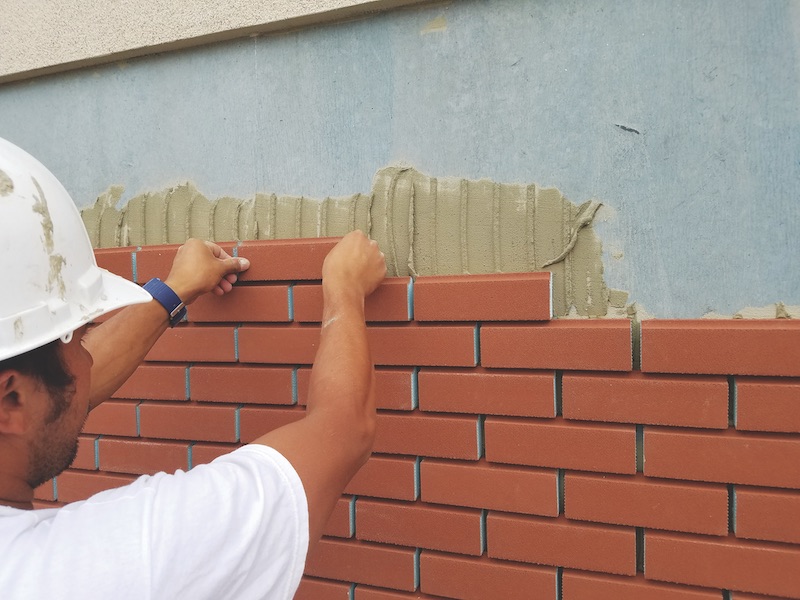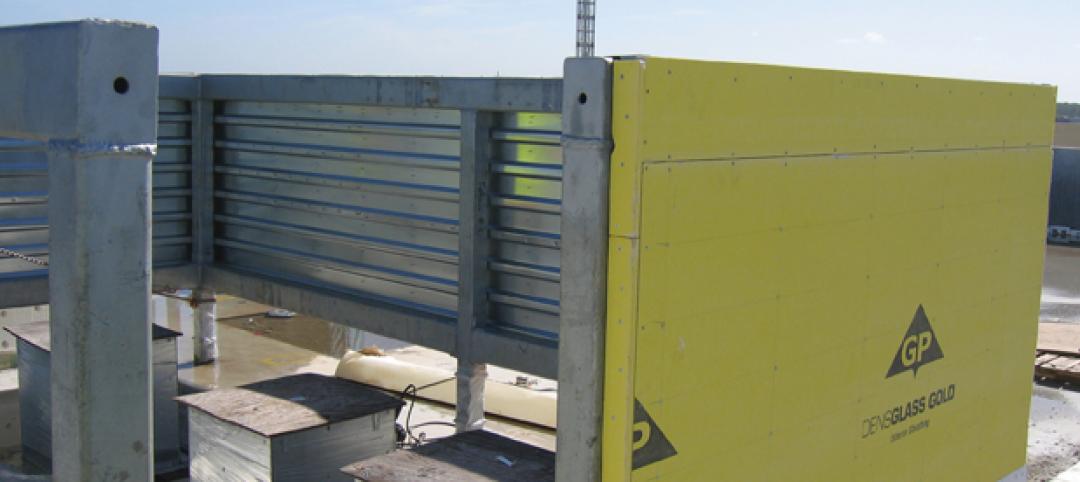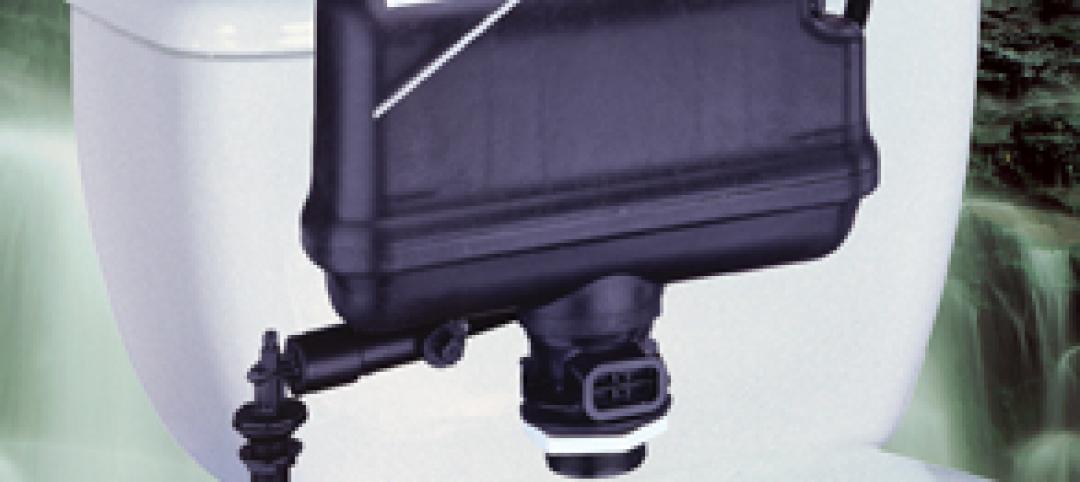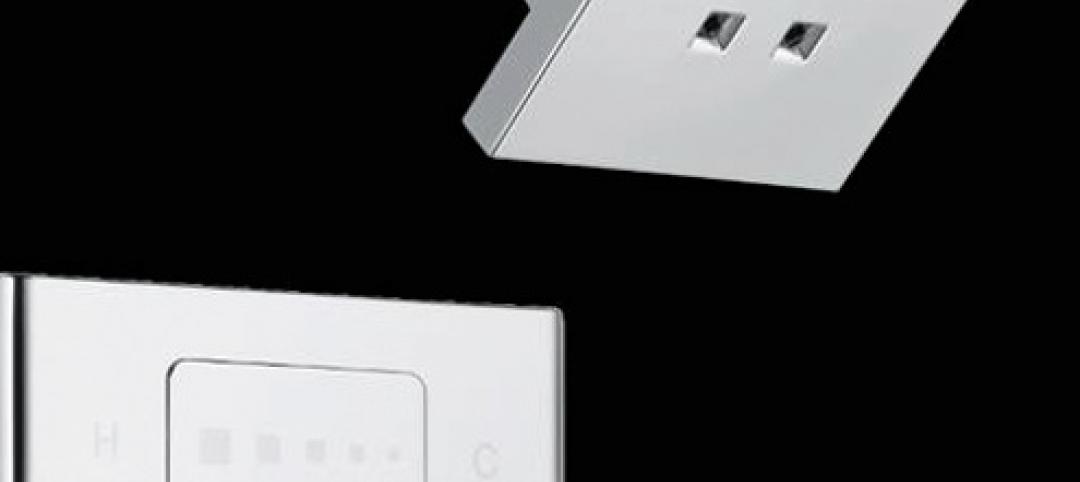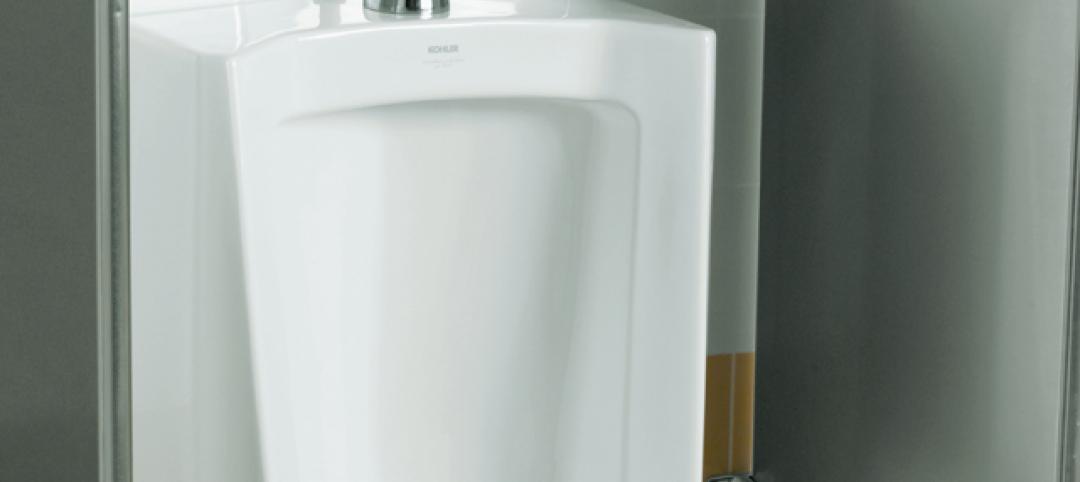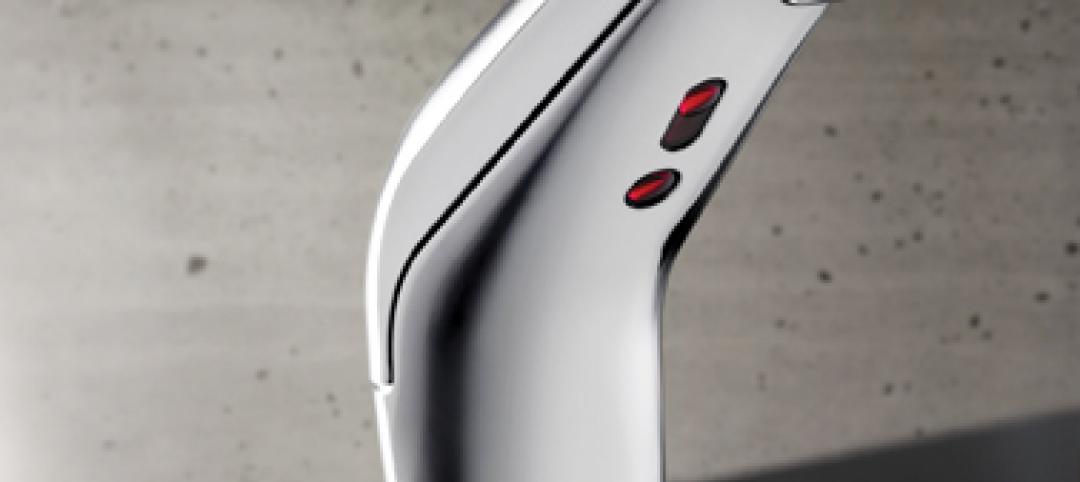While traditional clay brick continues to be a workhorse material in new construction projects, it is rarely used as a structural building component. When compared to alternative nonstructural veneer options, such as precast concrete and thin-brick systems, clay brick can be excessive in terms of weight and installation time.
Dryvit aims to rectify the peccadilloes of brick when used as a façade with the introduction of NewBrick, a lightweight insulated brick product that is coated with a specially formulated finish to mimic the look and feel of traditional brick. The thin-brick material is installed much like bathroom or kitchen tile. Each unit is adhesively attached to almost any substrate—concrete, masonry, air/water resistive barrier, EIFS. The joints are then sealed with conventional mortar to replicate the appearance of handlaid brick construction. An engineered drainage plane removes incidental moisture.
NewBrick is 12 times lighter than conventional four-inch face brick, weighing 2.45 lbs./sf compared to 29 lbs./sf. This weight savings means NewBrick is easier, safer, and faster to work with, especially for multistory construction, according to the maker. Building support systems, such as shelves, pans, and ties, are no longer needed, and the costs associated with transporting materials to the job site are decreased.
When used with Dryvit’s Outsulation system, NewBrick creates an energy-efficient wall assembly that meets IECC and Title 24 requirements for the use of continuous insulation.
Available in 16 standard colors, four blends, three textures, three effects, and four sizes: modular, utility, economy, and norman. A full line of corner, end, edge cap, and flat brick units are also available.
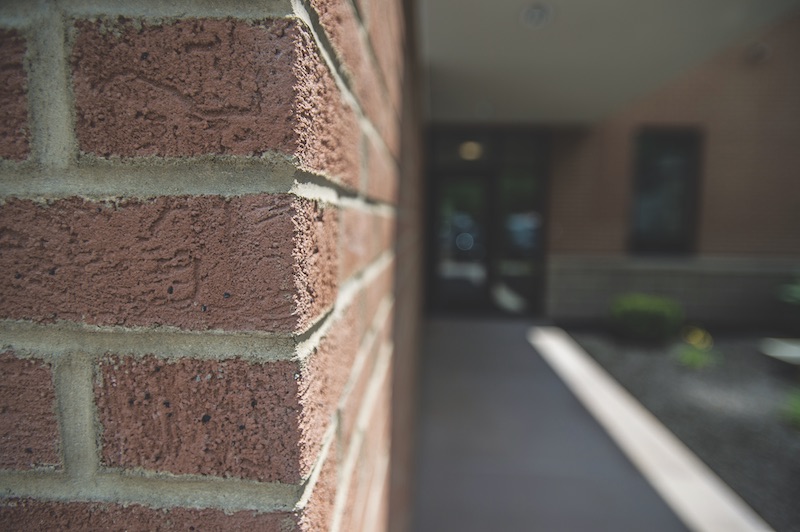 Courtesy of Dryvit.
Courtesy of Dryvit.
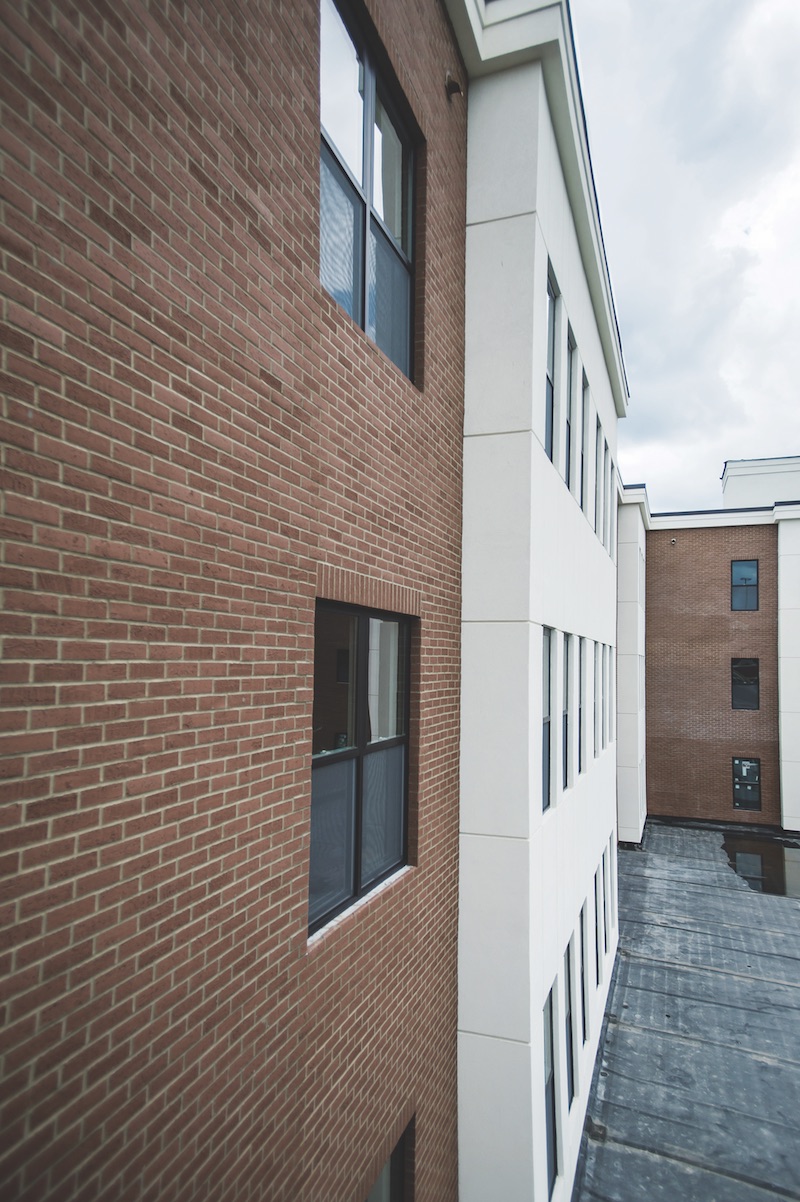 An office building in Schenectady, N.Y., was one of the first NewBrick installations. Courtesy of Dryvit.
An office building in Schenectady, N.Y., was one of the first NewBrick installations. Courtesy of Dryvit.
Related Stories
| Feb 15, 2011
New 2030 Challenge to include carbon footprint of building materials and products
Architecture 2030 has just broadened the scope of its 2030 Challenge, issuing an additional challenge regarding the climate impact of building products. The 2030 Challenge for Products aims to reduce the embodied carbon (meaning the carbon emissions equivalent) of building products 50% by 2030.
| Feb 11, 2011
Four Products That Stand Up to Hurricanes
What do a panelized wall system, a newly developed roof hatch, spray polyurethane foam, and a custom-made curtain wall have in common? They’ve been extensively researched and tested for their ability to take abuse from the likes of Hurricane Katrina.
| Feb 10, 2011
Green Plumbing Fixtures Take a Major Leap Forward
Today’s low-flow plumbing fixtures not only conserve water, they also provide convenience and ease of maintenance.
| Feb 10, 2011
Sloan Valve Co. Flushmate
Sloan Valve Co.’s Flushmate IV 1-gallon pressure-assist system uses air pressure to flush. Rather than pulling waste through the trapway, the system, which works with tank-style high-efficiency toilets, pushes the waste through at nearly three times the flow rate of gravity units. Large water surface area also helps the toilets stay clean longer.
| Feb 10, 2011
Delta WaterSense-labeled showerheads
Delta offers nine collections with WaterSense-labeled showerheads, which are equipped with droplet-enlarging technology that increases both water and energy savings. An Arzo Collection showerhead is pictured.
| Feb 10, 2011
Kohler urinals
Kohler offers urinals with three flush options to fit a variety of applications: standard 1-gallon, pint, or waterless.
| Feb 10, 2011
Moen M•Power electronic faucets
At 0.5 gpm, Moen’s M•Power electronic faucets meet the current standards, and offer features that eliminate waste. Improved electronic sensors reduce reflectivity to stop false sensing, and turn off automatically after 30 seconds. Electronics can be installed above or below deck to accommodate different sink styles.
| Feb 3, 2011
Duro-Last Roofing, Inc. Adds Standing Seam Metal Product Line
Duro-Last Roofing, Inc. is adding a standing seam metal product line to its roofing system offerings. With five profiles and more than thirty colors to choose from, the new line will enable authorized Duro-Last contractors to provide a standing seam roofing installation to meet virtually any aesthetic requirements.
| Jan 25, 2011
Sherwin-Williams Zero-VOC Claim Misleading, Says BBB
In a move that could prompt industry-wide changes to claims about volatile organic compounds (VOCs), the Better Business Bureau’s National Advertising Division (NAD) has told Sherwin-Williams it should stop marketing its Harmony line of paints as “zero-VOC.” Sherwin-Williams said it will accept NAD’s decision and will take the findings into consideration in its future advertising.


